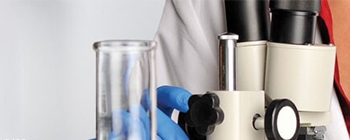Learn More
CD28 Monoclonal Antibody (37.51), PE, eBioscience™, Invitrogen™
Syrian Hamster Monoclonal Antibody
Supplier: Invitrogen 12028181
Description
Description: The 37.51 monoclonal antibody reacts with the mouse CD28 molecule, a 45 kDa homodimer expressed by thymocytes, mature T cells and NK cells. CD28 is a ligand for CD80 (B7-1) and CD86 (B7-2) and is a potent costimulator of T cells. Signaling through CD28 augments IL-2 and IL-2 receptor expression as well as cytotoxicity of CD3-activated T cells. Applications Reported: The 37.51 antibody has been reported for use in flow cytometric analysis. Applications Tested: The 37.51 antibody has been tested by flow cytometric analysis of mouse splenocytes. This can be used at less than or equal to 0.5 μg per test. A test is defined as the amount (μg) of antibody that will stain a cell sample in a final volume of 100 μL. Cell number should be determined empirically but can range from 10^5 to 10^8 cells/test. It is recommended that the antibody be carefully titrated for optimal performance in the assay of interest. Note: It has been observed that increased incubations times (30-45 minutes) with the CD28 antibody can enhance the staining obtained. Excitation: 488-561 nm; Emission: 578 nm; Laser: Blue Laser, Green Laser, Yellow-Green Laser. Filtration: 0.2 μm post-manufacturing filtered.
CD28 antigen is a 44 kDa disulfide linked homodimeric T cell specific surface glycoprotein. CD28 is a cell adhesion molecule of the immunoglobulin superfamily which is constitutively expressed on most peripheral blood T lymphocytes. Moreover, CD28 is the critical T cell costimulatory receptor that provides the cell the important second activation signal by binding CD80 and CD86 which are expressed by antigen presenting cells. In addition to its co-stimulation role, CD28 functions by preventing T cells from entering an anergic-hyporesponsive state or from undergoing premature apoptotic cell death. In murine peripheral lymphoid organs and in the blood, all CD4+ and CD8+ T cells express CD28. In the thymus, CD28 expression is highest on immature CD3-, CD8+ and CD4+8+ cells, and on CD4-8- cells that express alpha/beta and gamma/delta TCR. The level of CD28 on mature CD4+ and CD8+ alpha/beta TCR+ thymocytes is two- to fourfold lower than on the immature cells. Diseases associated with CD28 dysfunction include mycosis fungiodes and Sezary's Disease.Specifications
| CD28 | |
| Monoclonal | |
| 0.2 mg/mL | |
| PBS with 0.09% sodium azide; pH 7.2 | |
| P31041 | |
| Cd28 | |
| Affinity chromatography | |
| RUO | |
| 12487 | |
| 4° C, store in dark, DO NOT FREEZE! | |
| Liquid |
| Flow Cytometry | |
| 37.51 | |
| PE | |
| Cd28 | |
| antigen CD28; CD28; CD28 antigen; CD28 antigen (Tp44); CD28 isoform; CD28 isoform 2; Cd28 molecule; CD28 precursor protein; CD28 protein; CD28 protein precursor; CD28RNA; cell surface protein; CHT28; contains partial extracellular domain; costimulatory molecule B7 receptor CD28; EGK_04709; MGC138290; sCD28; soluble CD28; T44; T-cell costimulatory molecule CD28; T-cell costimulatory molecule Tp44; T-cell-specific surface glycoprotein CD28; T-cell-specific surface glycoprotein CD28 homolog; TP44 | |
| Syrian Hamster | |
| 50 μg | |
| Primary | |
| Mouse | |
| Antibody | |
| IgG |
For Research Use Only.



